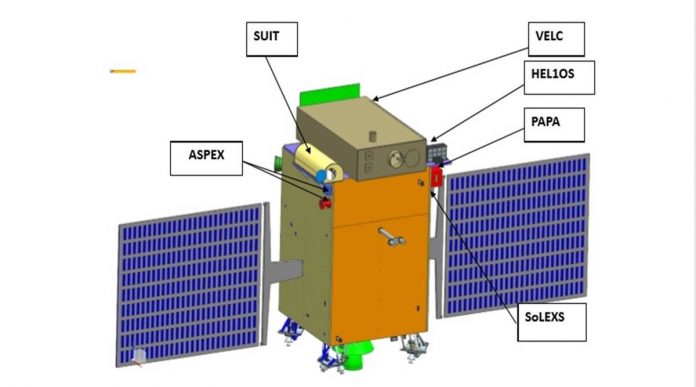One year before the proposed launch of India’s maiden solar mission — the Aditya L1 — Indian researchers plan to create a skilled community of solar scientists ready to use the scientific data which will emerge from the mission. As a first step, the Aditya-L1 Support Cell (AL1SC) has been established at the Aryabhatta Research Institute of Observational Sciences (ARIES), which will primarily produce this required trained manpower. An MoU in this regard was inked between ARIES and Indian Space Research Organisation (ISRO) earlier this year.
The Support Cell will be a one-stop online platform for students, faculty and researchers from colleges, universities and institutions in India to get free access to a sample of processed scientific data pertaining to the Sun. All the data will be hosted at the Indian Space Science Data Centre (ISSDC) of ISRO with ARIES Cell acting as a manpower training centre.
“The Cell will provide training and skilling to students and the larger user community to handle the scientific data for undertaking research activities. We plan to reach out to college and university students, expand and double the current solar researchers in India over the next two years,” Prof Dipankar Banerjee, director of ARIES, told The Indian Express on Tuesday.
The Aditya L1mission, led by ISRO, aims to set up a space-based observatory to track the Sun and it is expected to be launched sometime in mid-2022. The seven payloads (instruments) will study solar corona, solar emissions, solar winds and flares, Coronal Mass Ejections (CMEs), as well as capture images of the Sun.
Along with ARIES, the space agency has joined hands with other national institutes, such as Indian Institute of Astrophysics (IIA), Inter University Centre for Astronomy and Astrophysics (IUCAA), Indian Institute of Science Education and Research, Kolkata, and others.
The Cell will not only offer training, it also plans to create catalogues of solar parameters and observations that can then be readily used as reference by the students once the data is ready. “In addition, the Cell will also be responsible for development of software and tools required to perform research using this data,” shared Banerjee.
Experts pointed out that the Covid-19 pandemic has forced the training sessions to be taken up partly online, for now. The sessions are expected to commence around mid-2021 soon after the launch of the AL1SC portal.
“We propose to conduct training sessions and short-duration workshops round the year for users across India. To begin with, the sessions using sample and simulated data will be conducted online,” said the ARIES director, who is also the co-chair of the Aditya L1 Science Working Group.









